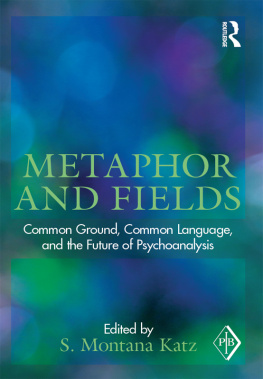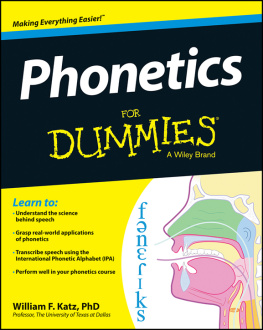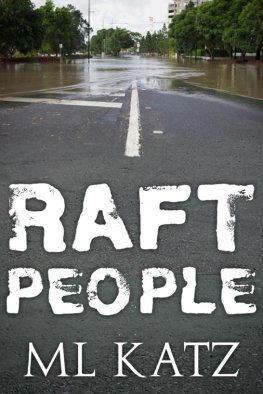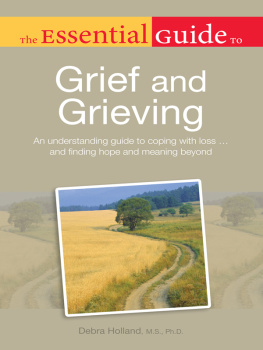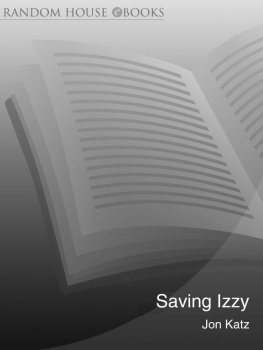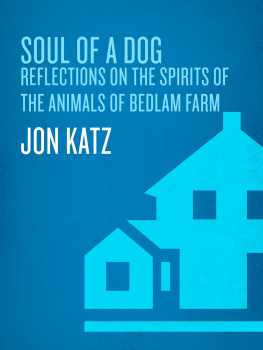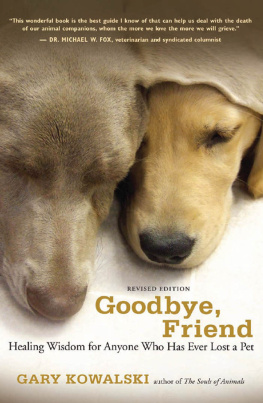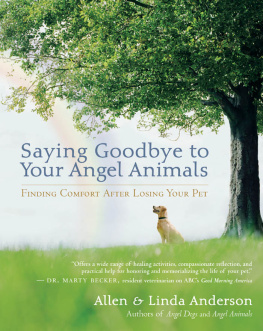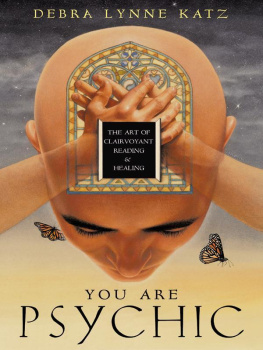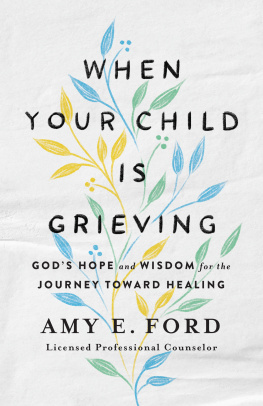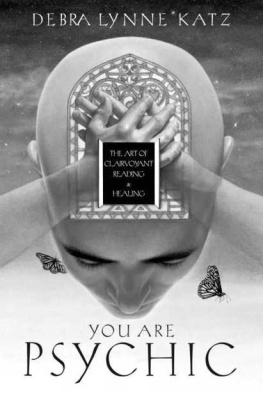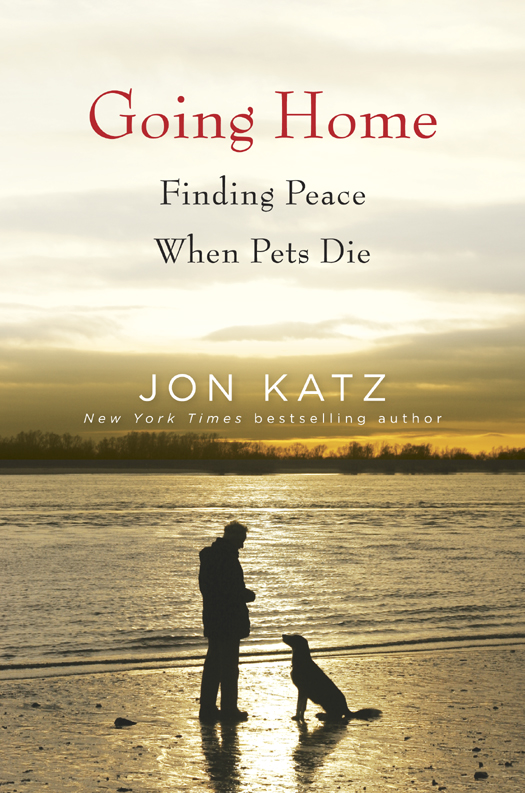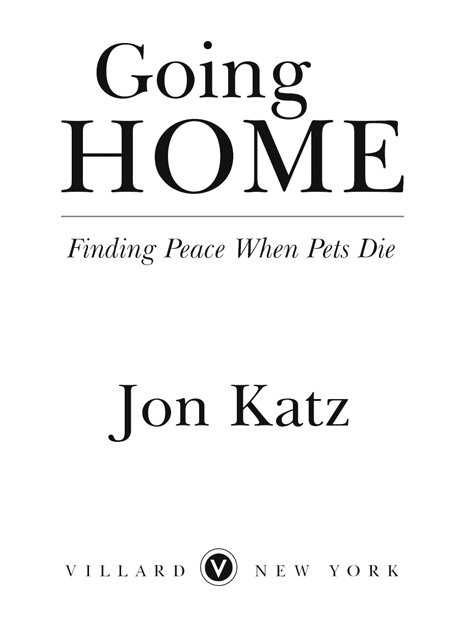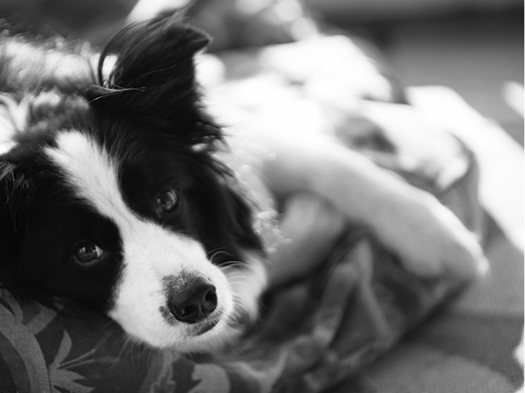
While incidents in this book did happen, some of the names and personal characteristics of some of the individuals have been changed. Any resulting resemblance to persons living or dead is entirely coincidental and unintentional.
Copyright 2011 by Jon Katz
All rights reserved.
Published in the United States by Villard, an imprint of The Random House Publishing Group, a division of Random House, Inc., New York.
R ANDOM H OUSE and colophon are registered trademarks of Random House, Inc.
eISBN: 978-0-345-52928-2
Random House website address: www.atrandom.com
Jacket design: Victoria Allen
Jacket photograph: plainpicture/Anna Matzen
v3.1
Contents
Introduction
It was my birthday, August 8, 2005. I had just brought Orson home from the vets office, where he had been put down.
My other dog, Rose, who reads me better than any other living creature, froze when I got out of the truck. From her post on the hill with the sheep, she watched me take Orsons body out of the truck, her eyes never straying from the unwieldy package.
Rose herded the sheep over to their feeder, then turned, came quickly down to greet me, and sniffed Orson through the large plastic bag the vet had given me. She had spent every day of her life with Orson and was almost always around him. I wondered how she would react. She would smell his death, of course, and know it instantly.
As detached as a crime-scene investigator, she took note of the bag, and of Orsons smell. She gave the sheep a stern warning look over her shoulder and fell into place alongside me, as if she had expected this to happen. Nothing surprised Rose. I loved her for being so adaptable. It was as if she was telling me, Hey, life goes on. Lets get this done and get back to work.
The late-afternoon clouds swept over the mountains and cast the hill in shadow. With Rose by my side, I made my way toward the top of the pasture where a handyman had dug a grave. Orson was the heaviest thing I have ever had to carry, in so many different ways. In that bag, along with the limp body of my dead dog, I carried a piece of my heart.
I had to stop two or three timesto put him down, catch my breath, swat the flies away, wipe my face with a handkerchief, gulp from the bottle of water in my back pocket. Each time, Rose waited for me. My back and legs hurt and I was in shock. Orson had died with his head in my lap, looking up at me, and Id felt as if I might come apart. I didnt. I didnt want him to pick up on my fear or sadness at the end of his life, so I just smiled and said, Thank you.
In 2000, a loving breeder in Texas told me she was seeking a home for a border collie who had failed to make it as a show dog. He was intense but intelligent, she said. He was beautiful. He had issues. I brought him into my life for reasons that are still not clear to me.
Orson did not turn out to be an ordinary dog in any respect. He crashed into my life like a meteor, and was so charismatic, rebellious, and explosive a personality that I abandoned my life as a mystery writer and media critic, began taking sheepherding lessons, bought Bedlam Farm, and ended up with a menagerie: donkeys, sheep, steers, and, for a while, some goats. I loved Orson dearly, although he drove me crazy from the moment I first picked him up at Newark Airport. Animal lovers know that troubled creatures are sometimes the ones we love most.
On the farm, Orson wreaked havoc, which was his dominant characteristic. He dug under and leapt over fences. His notion of sheepherding was to grab the largest ewe and pull her over onto the ground. He was intensely arousable. And, unfortunately, overprotective. Orson nipped at workmen, package-delivery people, neighbors. He bit three people, including a child. My beloved dog defied treatment from the best and most expensive veterinarians, holistic practitioners, trainers, and animal communicators. He was simply beyond my ability to repair or control.
Still, Orson taught me a lot about my own limits, and he also sparked a process that made me not just a writer but a writer about dogs, farms, and rural living. He was the dog who changed my life.
One of the many gifts Orson led me to was Rose, another border collie. Working with Orson, I came to love border collies and was mesmerized by the rituals and practices of herding sheep with them.
I got Rose when she was just eight weeks old. A small, beautiful, black-and-white creature, she was, from the first, my partner on the farm, helping me with herding and lambing. She battled coyotes and pigs, fought off rabid feral cats and skunks, and twice saved my life. Each time, I had fallen on the ice during an awful winter storm and knocked myself out. I would have frozen to death in the bitter cold if Rose had not awakened me by nipping on my ears.
Like Orson, Rose has had a profound impact on my life, making it possible, in many ways, for me to live on a farm. She and Orson were as inseparable as they were different.
Orson gave me so much, and I repaid him by ending his life. He was troubled, damaged, and I spent years trying to fix him, to no avail. I talked to my vet and we agreed that he should be euthanized. There was nothing left to try, no more money to spend. It was an agonizing decision, but I had to trust that it was the right one.
It took me a while to get Orson up the hill that day. Rose no longer paid overt attention to the bag, yet I could tell she was aware of it. She was always with me when there was work to do, pleasant or not.
The grave site at the top of the pasture was a beautiful spot, with a commanding view of the farm and the hills and valley beyond.
Orson would love it up there, I hoped. I dug the hole deeper to prevent predators from getting into the grave. Sweat soaked my clothes now, and the flies feasted on my arms and face. Ever vigilant, Rose sat nearby watching me and keeping an eye on the sheep below.
After I buried Orson carefully, I placed the marker, a flat slab of stone carved with his name, at the head of his grave. I shook my head. I wanted to cry but could not, though the pain I felt was piercing.
I had lost dogs before, but not this dog, and not in this way. This one really hurt.
I was awash in guilt, grief, and loss. And I was alone. I didnt know how to deal with the pain I was feeling, or how to mourn this dog, whom I loved beyond words and owed so much. He had been such an integral part of my lifenot only had he inspired me to change my life for the better, but he had lived each of those changes with me. We had traveled all over the country togetheron book tours, to herding trials, even to the University of Minnesota, where I taught for a few months.
But even so, I was embarrassed by my grief. Perhaps that shame was due to my gender and a long-held tendency to hide emotions and bury feelings. I didnt feel like calling up my friends or the people I worked with to tell them I was in mourning over a dog. What would they think of me? Human beings died every day in the world, and suffered illness, catastrophes, and great misfortune. What right did I have to fall to pieces over a border collie? I heard my fathers voice clearly: Suck it up.
I did not want to be one of those silly people who lost themselves in the lives of their dogs and cats. I didnt want people to see how I felt. I told myself that Orson was just a dog, an animal. It wasnt like he was human. Yet my grief could hardly have been worse. I admitted to myself that I had lost members of my family for whom I had not felt that much sorrow. It was a shocking thing to concede.


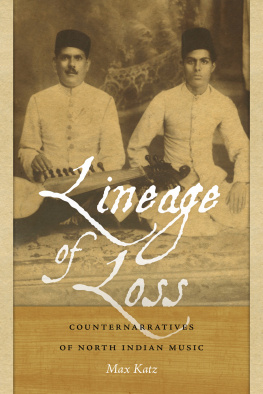
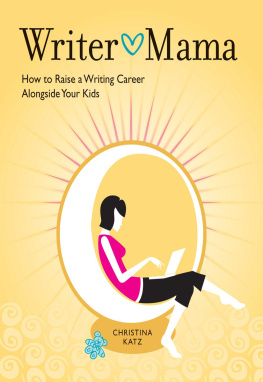
![Katz - Zombie Slayer Box Set, Vol. 1 [Books 1-3]](/uploads/posts/book/141697/thumbs/katz-zombie-slayer-box-set-vol-1-books-1-3.jpg)
